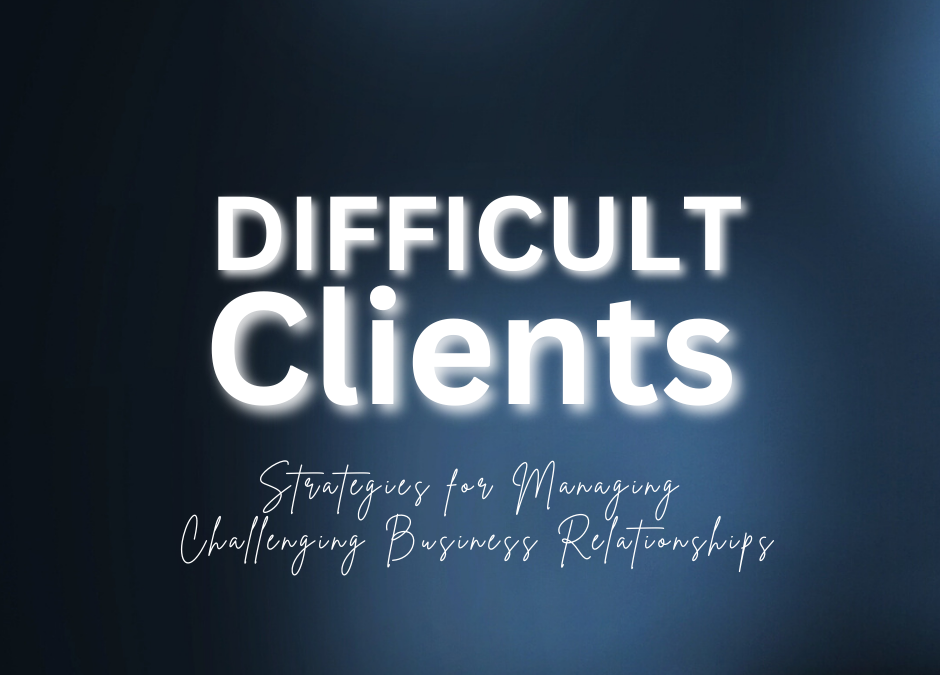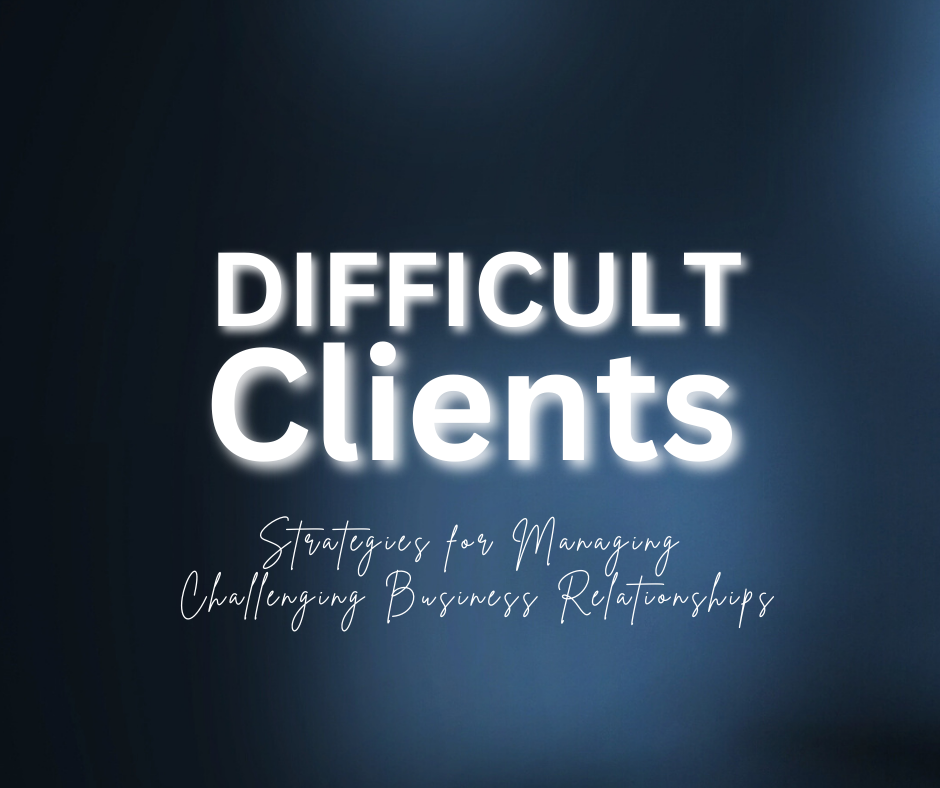
Dealing with Difficult Clients: Strategies for Managing Challenging Business Relationships
Difficult clients are a common challenge in the business world. Whether you’re a small business owner or working in a large corporation, chances are you’ve encountered a difficult client at some point in your career. These clients can be demanding, unrealistic, and sometimes downright unpleasant to work with. However, there are effective strategies for managing these relationships that can help minimize the negative impact on your business.
Here are some key tactics to consider:
Set Clear Expectations and Boundaries
One of the most important things you can do when working with difficult clients is to set clear expectations and boundaries from the outset. This involves being transparent about what is and isn’t included in the scope of work, as well as establishing ground rules for the relationship. For example, you may want to outline your communication policy, including response times and preferred methods of communication.
Setting expectations and boundaries early on can help prevent future misunderstandings and disagreements. This can also help establish a level of trust with the client, as they will feel more confident knowing what to expect from you and your team.
Communicate Openly and Honestly
Open and honest communication is essential when dealing with difficult clients. It’s important to address issues directly, listen to the client’s concerns, and respond promptly and respectfully. Building empathy and understanding the client’s perspective can also help resolve conflicts.
It’s important to remain calm and professional when communicating with difficult clients. Avoid getting defensive or emotional, and instead, focus on finding solutions to the immediate problem. By approaching the situation with a constructive mindset, you can help turn around a difficult client and improve the overall business relationship.
Focus on Solutions Instead of Problems
When faced with challenges, it’s beneficial to focus on finding solutions rather than dwelling on the problems. This proactive approach can help in turning around a difficult client and improving the overall business relationship. By focusing on solutions, you can demonstrate to the client that you’re committed to resolving the issue and that you value their business.
To effectively focus on solutions, it’s important to identify the root cause of the problem. This may involve asking the client for more information or conducting an internal review of your processes. Once you’ve identified the issue, work with the client to develop a plan for resolving it. Set clear expectations for what needs to be done, who will be responsible for doing it, and when it will be completed.
Know When to Walk Away from a Toxic Relationship
In some cases, it may be necessary to recognize when a client relationship has become toxic and is no longer sustainable. This may be due to a variety of factors, including unrealistic expectations, poor communication, or abusive behavior.
While it can be difficult to walk away from a client, it’s important to recognize when it’s necessary for your team’s well-being and your business’s overall success.
In these situations, it’s important to remain professional and respectful and to provide the client with a clear explanation of why you’re ending the relationship.
In addition to these strategies, staying calm, maintaining professionalism, and understanding the type of difficult client you’re dealing with is important. Some clients may simply be demanding or have high expectations, while others may be manipulative or abusive. By understanding the type of difficult client you’re dealing with, you can develop a more effective strategy for managing the relationship.
In conclusion, the key to dealing with difficult clients is to approach the situation with patience, empathy, and a focus on constructive resolutions. By setting clear expectations, communicating openly, and knowing when to make tough decisions, businesses can navigate challenging client relationships more effectively.
While it can be challenging to work with difficult clients, it’s important to remember that these relationships can also provide valuable opportunities for growth and learning.

